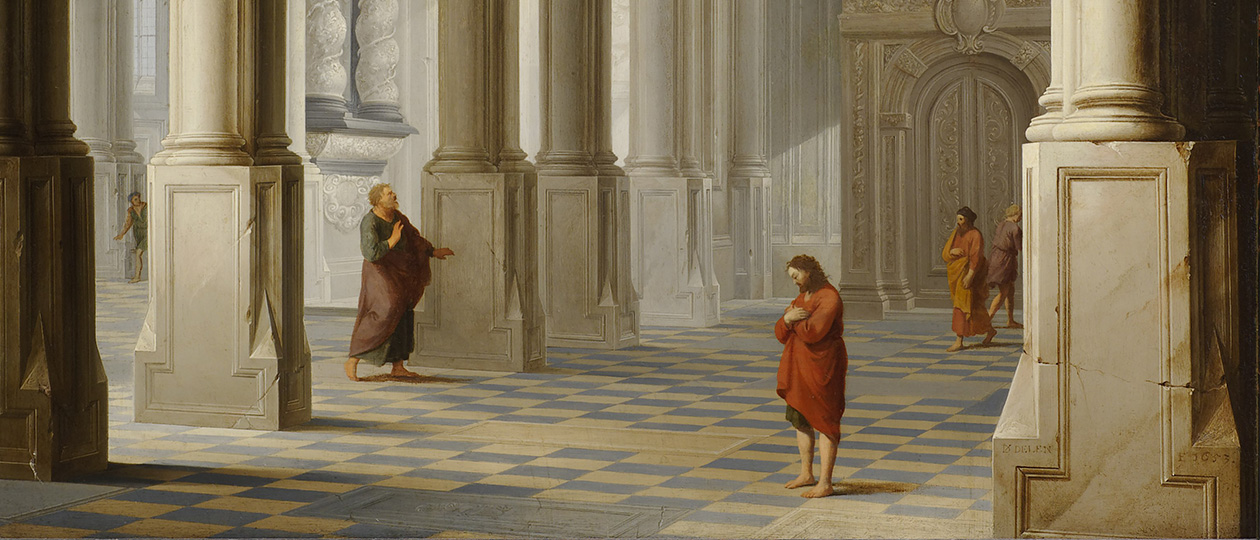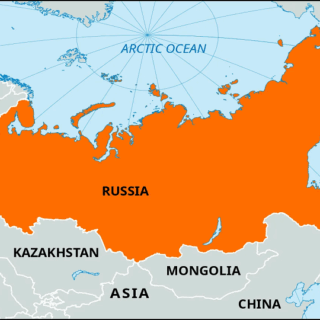
“…two men went up into the temple to pray, the one a Pharisee, and the other a publican.
The Pharisee stood and prayed thus within himself, ‘God, I thank you that I am not as other men are, extortioners, unjust, adulterers, or even as this publican.
I fast twice a week, I give tithes of all that I possess.’ Now the publican, standing afar off, would not so much as lift up his eyes to heaven, but smote himself on the breast, saying, ‘God be merciful to me a sinner.
I tell you, this man went down to his house justified rather than the other. For everyone who exalts himself will be humbled, but he who humbles himself will be exalted’” (Luke 18:10-14).
Characters
First of all, we need to understand who a publican is and who a Pharisee is.
The publican, if we look for his equivalents in our time, most of all resembles a modern collector: he was a person who bought debts and tax obligations of the population from the state and then collected these debts with interest from the population, using gangster methods.
And the Pharisee is approximately a modern active parishioner: a person who regularly attends church, prays according to the charter, convinced that faith is the center of human life and one must live according to the laws and regulations determined by the Holy Scripture.
I believe that if we remember this, the parable will already seem much more ambiguous to us than when reading it with blurred eyes, when we remember not the original meaning of the words, but only those meanings that developed in the words based on this parable.
They say that this parable is about pride and the humiliation of the proud. Perhaps it speaks about this too – but not only about this. And perhaps it does not say it the way we think.
What does the Pharisee ask for?
It is astonishing – but he asks for nothing! His prayer is a prayer of thanksgiving, not a prayer of need; apparently, he prays the most perfect of prayers.
And he does not ascribe to himself the merit of his own merits and his perfect life – he attributes the merit of the fact that he fulfills everything commanded, entirely to God. He feels himself to be God’s favorite, created differently from other people, mired in sins and not observing the law.
The Pharisee, however, fulfills even more than the law and the regulations require: he fasts more than commanded and gives more than the law requires, according to which the tithe was collected only from the harvest and cattle (and not from everything acquired).
The Pharisee here appears as a thing that has completely and even with a little excess filled its boundaries, occupied the limits assigned to it, fully realized. A thing with which its Creator has, as it were, nothing more to do.
What does the publican ask for?
The publican asks the Lord for reconciliation (this is the intended meaning of the verb ʻιλάσκομαι used here: to appease, to restore peace). That is, he does not ask for anything specific – he asks only to come into contact with God again. That the certainty of him, which he created with his sins and which hangs over him like a coffin lid, shielding him from heaven, be removed – and the field of possibilities be opened up to him again.
The Pharisee gives thanks for being perfect, that is, completed – but the publican asks for the opportunity to begin.
Interpretation in context
But let us not be mistaken – any (even the most correct and well-formed) certainty binds a person to a tomb – which is what Jesus says, comparing the Pharisees in another place with painted, beautiful tombs, inside which there are only bones and dust (Matthew 23:27).
Note – thus distant parts of the Gospel reveal the true meaning of each other.
But even more help to reveal the meaning of each other are the Gospel episodes that are close to each other – at first glance, disparate and even causing us dissatisfaction with the discontinuity of the plot.
I believe that in a number of cases, the smoothness of the plot was sacrificed precisely for the sake of semantic aggregations and correspondences.
As in the case of the parable of the publican and the Pharisee. For immediately after this parable in Luke there follows the episode of the infants brought to Jesus – and the words that only by accepting the Kingdom of God as children can we enter it (Luke 18:17).
Why do we need to be like children
The Holy Fathers, who were mostly monks and rarely saw children, interpreted this episode in the sense that to enter the Kingdom of Heaven, one needs childlike good nature, humility and meekness.
We, being laymen, can only be surprised at how children can be attributed these qualities. In any case, children possess them as rarely as adults.
In order to accurately understand what is said here, one must single out the quality that is inseparably inherent in children, constituting the quality of “childishness.”
There is only one such quality – the ability to grow. An adult differs from a child in that he has already grown up. Thus, those who have not lost the ability to grow enter the Kingdom of Heaven.
They grow into the Kingdom of Heaven. And those who lose this ability become beautiful tombs of themselves long before their obvious death.
The Lord is not the God of the dead, but the God of the living (Luke 20:38) – and He has nothing to do with painted tombs.
In this regard, the final words of the parable become clear: “for everyone who exalts himself will be humbled, but he who humbles himself will be exalted.”
The one who exalted himself turned out to be higher than everyone – and therefore he does not need to grow anymore. He will stop growing, because he already looks down on everyone. When everyone is lower than you – this is an obstacle to development.
He who humiliates himself, seeing those around him who are higher – opens up space for growth and a desire for growth in himself. Because it is very interesting to see what is there, at the level of those who are higher. Because when someone is higher – this is an incentive to develop.
“Pharisee” means “separated”
The word “Pharisee” comes from the Hebrew verb meaning “to separate“, “to be isolated“. And our Pharisee feels like a complete thing also in the sense that he is “not like other people“. Meanwhile, Christianity teaches us that every step we take towards God is simultaneously our
step towards every person, that our growth towards God is simultaneously our growth towards merging with everyone.
By receiving the blood of Christ in communion, we not only give the opportunity for the blood of God to flow in our veins – but we also give space for the blood of all those who have received communion to flow in our veins.
One “grows into” the Kingdom of God, “growing” in many directions at once, discovering God in each neighbor and opening up to God in each neighbor.
Therefore, in Christianity there are only two commandments – about love for God and about love for one’s neighbor – and these, as we see, are also commandments of growth.
To love your neighbor as yourself means (at least in one sense) to see him not as a separate person, butalso as yourself. To “grow up” to a community with him. So the fingers of a hand can suddenly realize their belonging to one palm.
What should we take away from this parable?
I think it would be wrong to say after reading: “I thank you, Lord, that I am not like that Pharisee.”
We simply have to understand that the publican’s goal – to open up a new field of possibilities – can be achieved by the Pharisee’s means – that is, by following all the laws and regulations – if we learn to see them as a means, not an end.
A means of reaching a new level – a new degree of closeness and love with people and God.





